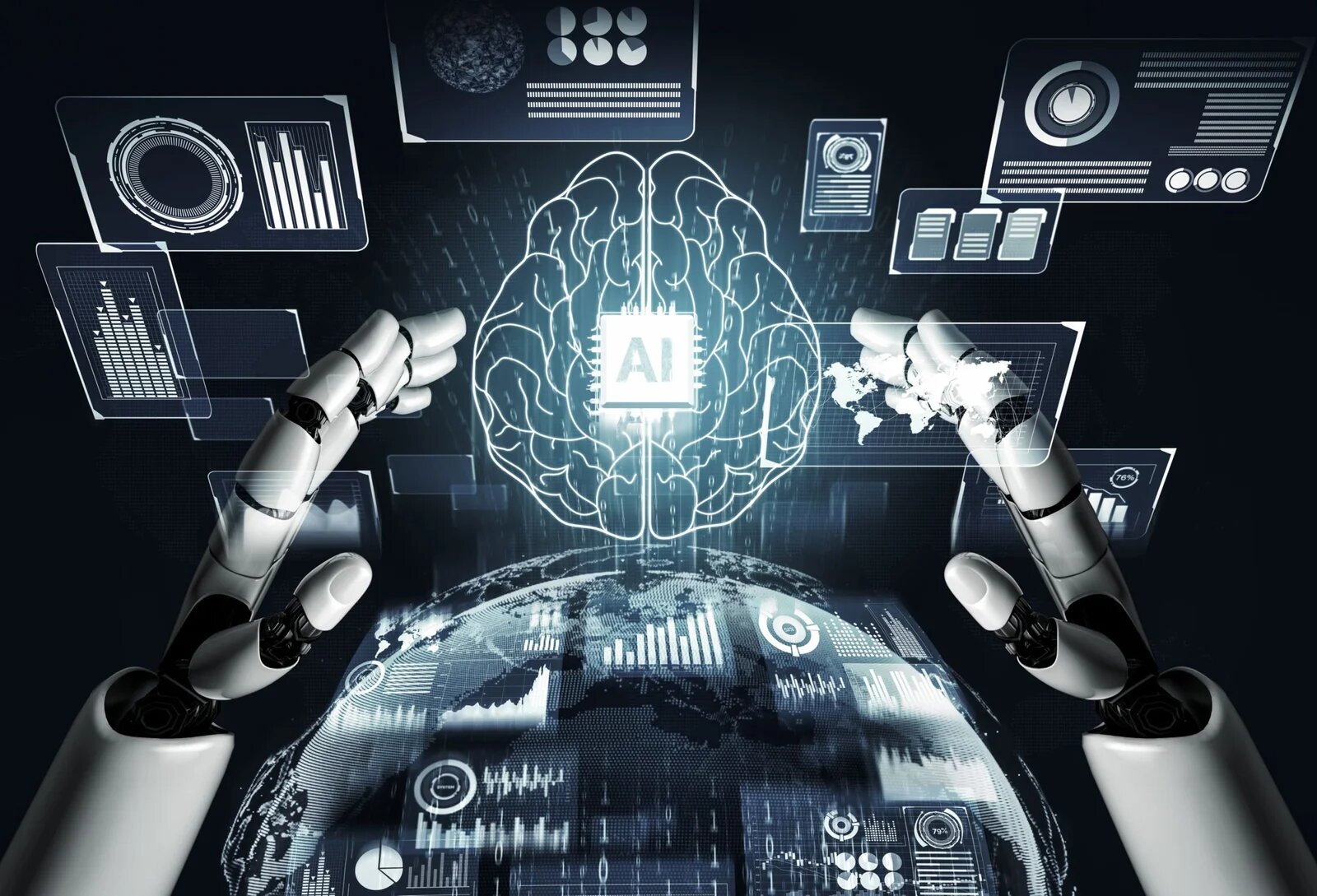Best NoSQL Databases for AI Agents: Choosing the Right Solution for Your AI Architecture
Selecting optimal databases for AI agents stands as a critical cornerstone in developing robust artificial intelligence systems. Modern AI architectures demand flexible, scalable, and high-performance data storage solutions that can handle diverse data types while maintaining peak efficiency.
The landscape of NoSQL databases has evolved significantly, offering specialized solutions designed explicitly for AI agent implementations, making the selection process both exciting and challenging for developers and architects alike.
As organizations continue to push the boundaries of AI capabilities, understanding the intricate relationship between databases for AI agents and system performance becomes increasingly vital for success in this dynamic field.
This comprehensive guide explores the most effective NoSQL database solutions that power today’s AI agents, helping you make informed decisions for your specific use cases and requirements.
We strongly recommend that you check out our guide on how to take advantage of AI in today’s passive income economy.
Table of Contents
Understanding NoSQL Databases in AI Agent Systems
NoSQL databases have revolutionized how we approach data storage and management for AI applications, particularly when dealing with complex databases for AI agents that process vast amounts of unstructured data.
These modern database systems offer the flexibility and scalability necessary to handle the diverse data types that AI agents frequently encounter, from simple text to complex neural network parameters.
The fundamental difference between traditional relational databases and NoSQL solutions lies in their ability to adapt to changing data structures, making them ideal for evolving AI agent requirements.
Key Considerations for Choosing Databases for AI Agents
When selecting databases for AI agents, several critical factors must be evaluated to ensure optimal performance and scalability of your AI architecture.
The ability to handle real-time data processing, support for vector operations, and seamless integration with existing AI frameworks should be at the forefront of your decision-making process.
Additionally, considerations such as data consistency, partition tolerance, and horizontal scalability play crucial roles in determining the success of your AI agent implementation.
Top NoSQL Database Solutions for AI Agents
1. MongoDB: The Versatile Choice for AI Agent Systems
MongoDB has established itself as a leading databases for AI agents solution, offering exceptional flexibility in handling diverse data structures and scaling capabilities that align perfectly with AI workloads.
Its document-based architecture allows AI agents to store and retrieve complex data structures efficiently, while built-in support for geospatial queries and text search enhances AI agent capabilities.
The platform’s aggregation pipeline and native integration with popular AI frameworks make it an excellent choice for organizations building sophisticated AI systems.
MongoDB Key Features for AI Applications
Advanced indexing capabilities and support for ACID transactions ensure data consistency across distributed systems, making it ideal for mission-critical AI agent deployments.
The platform’s change streams feature enables real-time data synchronization, crucial for AI agents that require immediate access to updated information.
Native support for JSON-like documents allows seamless integration with modern AI development workflows, while horizontal scaling capabilities ensure performance as your AI system grows.
2. Cassandra: Scaling AI Agent Operations
Apache Cassandra excels as one of the most reliable databases for AI agents when it comes to handling massive datasets across distributed systems.
Its masterless architecture and linear scalability make it particularly suitable for AI agents that process large volumes of time-series data or require high-throughput operations.
The database’s ability to handle write-intensive workloads while maintaining consistent read performance makes it ideal for AI systems that generate and analyze vast amounts of data.
Cassandra’s Distributed Architecture Benefits
The platform’s peer-to-peer architecture eliminates single points of failure, ensuring high availability for AI agent operations across global deployments.
Built-in support for data replication and tunable consistency levels allows organizations to balance data consistency and availability based on their specific AI agent requirements.
Advanced partitioning strategies enable efficient data distribution and retrieval, crucial for AI agents operating across multiple geographic regions.
3. Redis: High-Performance In-Memory Database Solution
Redis stands out among databases for AI agents due to its exceptional performance characteristics and support for specialized data structures.
Its in-memory nature makes it particularly suitable for AI agents that require ultra-low latency access to frequently accessed data or need to maintain complex data relationships.
The platform’s pub/sub capabilities enable real-time communication between AI agents, while its persistence options ensure data durability when needed.
Redis AI-Specific Features
Native support for vector similarity search makes Redis an excellent choice for AI applications involving recommendation systems or natural language processing.
The database’s module system allows extension of its capabilities to support specific AI workloads, including machine learning model serving and feature storage.
Integration with popular AI frameworks enables seamless deployment of AI models and efficient management of model artifacts.
4. Neo4j: Graph Database Excellence for AI Agents
Neo4j represents a specialized category of databases for AI agents that excel in handling highly connected data structures and relationship-based queries.
Its native graph architecture makes it particularly effective for AI agents that need to analyze complex relationships, patterns, and networks within data.
The platform’s Cypher query language provides an intuitive way to express complex relationship-based queries that would be challenging to implement in traditional databases.
Graph-Based AI Applications
Neo4j’s ability to traverse relationships in real-time enables AI agents to make sophisticated decisions based on network analysis and pattern recognition.
The platform’s support for graph algorithms facilitates advanced analytics capabilities, crucial for AI applications in fraud detection, recommendation systems, and knowledge graphs.
Native integration with machine learning frameworks allows organizations to combine graph-based features with traditional ML approaches.
5. Elasticsearch: Search-Optimized Database Solution
Elasticsearch has emerged as one of the most powerful databases for AI agents focused on search and analytics capabilities.
Its distributed architecture and near real-time search capabilities make it ideal for AI agents that need to process and analyze large volumes of textual data.
The platform’s advanced text analysis features and support for complex queries enable sophisticated natural language processing applications.
AI-Powered Search Capabilities
Built-in support for machine learning and anomaly detection helps AI agents identify patterns and irregularities in data automatically.
The platform’s aggregation framework enables complex analytics operations, crucial for AI agents that need to derive insights from large datasets.
Integration with popular AI frameworks allows organizations to enhance search capabilities with custom machine learning models.
Implementation Best Practices
Optimizing Database Performance for AI Agents
When implementing databases for AI agents, careful attention must be paid to optimization strategies that ensure peak performance and reliability.
Proper indexing strategies, data modeling approaches, and caching mechanisms should be tailored to your specific AI agent requirements.
Regular monitoring and performance tuning ensure that your database solution continues to meet the evolving needs of your AI system.
Scaling Considerations
Implementing proper sharding strategies and load balancing mechanisms ensures optimal performance as your AI agent system grows.
Understanding data access patterns and query optimization techniques helps maintain responsiveness under increasing load.
Regular capacity planning and performance testing help identify potential bottlenecks before they impact AI agent operations.
Security and Compliance Considerations
Security remains a critical concern when implementing databases for AI agents, particularly when handling sensitive data or regulatory requirements.
Implementing proper authentication, authorization, and encryption mechanisms ensures data protection throughout your AI agent system.
Regular security audits and compliance checks help maintain the integrity and trustworthiness of your AI agent operations.
Conclusion
Choosing the right databases for AI agents requires careful consideration of various factors, including scalability, performance, and specific use case requirements.
Understanding the strengths and limitations of different NoSQL solutions helps ensure optimal alignment with your AI agent architecture.
Regular evaluation and adjustment of your database strategy ensure continued success as your AI system evolves and grows.
By following the guidelines and best practices outlined in this comprehensive guide, organizations can make informed decisions about their database infrastructure for AI agent systems.
The future of AI agent development continues to drive innovation in database technologies, making it essential to stay informed about emerging solutions and best practices.

We strongly recommend that you check out our guide on how to take advantage of AI in today’s passive income economy.




